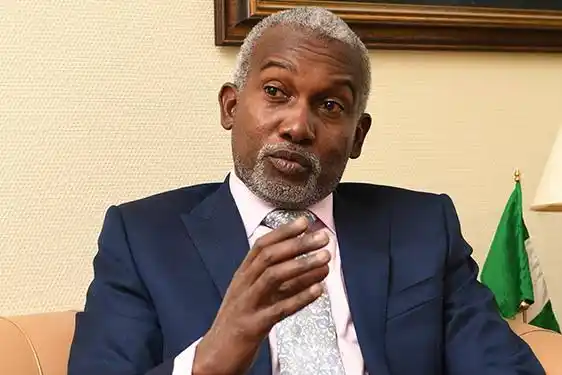The Federal Government, has explained why it has not appointed ambassadors one year after President Bola Ahmed Tinubu assumed office.
The Minister of Foreign Affairs, Yusuf Maitama Tuggar, who spoke during the Ministerial Sectoral Briefing organised by the Ministry of Information and National Orientation in Abuja, said the delay was as a result of financial challenges faced by the country.
Tuggar stated that on assumption of office, President Tinubu gave priority to the removal of subsidies on consumption to redirect focus towards production subsidies.
The immediate past Nigerian Ambassador to the Federal Republic of Germany added that the decision which was geared towards economic reform, came with its own challenges, which included currency depreciation, inflation, and overall financial instability.
Tuggar said: “The whole idea was to stop subsidising consumption and focus on subsidising production.
“However, the government has faced various other challenges. When the microeconomic reforms began showing benefits, platforms like Binance and the rise of cryptocurrencies began undermining those gains.”
Tuggar further explained that as a result of the economic development, the Ministry of Foreign Affairs has not been receiving the necessary funding to operate effectively.
Tuggar added that there was no need appointing ambassadors without the financial resources to support their travel and the effective running of missions abroad.
“We met a situation where Foreign Affairs was not being funded like the way it should be. Some loopholes are exploited by the likes of Binance. It is a money problem. There is no point sending out ambassadors if you do not have the funds for them to even travel to their designated country and to run the missions effectively, one needs funding,” Tuggar also said.
Tuggar however assured that the government was addressing the issue.
“Mr. President is working on it and it will be done in due course,” Tuggar assured.
Meanwhile, the Federal Government, has said it will continue to engage other countries regarding the issue of visa denial to Nigerians.
Speaking during the Ministerial Sectorial Briefing in Abuja, the Minister of Foreign Affairs, Yusuf Maitama Tuggar, stated that Nigeria will continue to engage with countries where such issues are raised for the collective interest of Nigerians.
“It should be noted that Nigeria has one of the highest global mobility in the world,” Tuggar said.
Disclosing the progress made so far since the inception of the President Bola Ahmed Tinubu’s administration, Tuggar explained that a total number of 25 Memorandum of Understanding were signed in various fields, 74 stakeholders engaged across Nigeria, 236 stakeholders engaged abroad and five stakeholder diaspora engagement were recorded.
Tuggar further disclosed that over 10,278 diasporans were engaged, 56 bilateral meetings held and a total number of three joint Commission/Senior official engagements such as the EU–Senior Officials Meeting,
On the policy the Ministry of Foreign Affairs has put in place for the Year of Return, Tuggar said the ministry is working with ministries, department and agencies, especially the Ministry of Interior to facilitate access to Nigeria for anyone who wants to visit Nigeria.
While also speaking on the Nigerian population with the level of poverty, and how Nigeria can handle more population from the Year of the Return, Tuggar stated that Nigerians are excelling all over the world, adding that their contribution to Nigeria is required.
Tuggar who also spoke on how the Federal Government will guarantee the safety of those returning, said President Tinubu has been very proactive on national security.
Earlier during the presentation, Tuggar said Nigeria will harness and leverage her Diaspora’s potential.
He also said Nigeria aimed to leverage its extensive diaspora community for knowledge transfer, capital investment, and Foreign Direct Investment (FDI).
“Enhanced consular services abroad will not only showcase Nigeria positively, but also demonstrate the readiness of Nigerians to influence foreign governments.
“The diaspora is seen as a crucial asset for national development, with programmes planned to facilitate remittances, ease of doing business, human capital gain, skill transfer, and other services for the benefit of Nigerians,” Tuggar stated.
In the area of democracy, Tuggar said Nigeria will promote democracy and remain resolutely committed to ensuring that democracy thrives and is sustained in West Africa and Africa.
“Democracy is crucial for peace and stability in Africa and globally. Nigeria seeks to be surrounded by democracies in West Africa and beyond. Proactive diplomacy is essential to resolve conflicts in sub-Saharan Africa, particularly in West Africa where military coups have ousted democratically elected governments, posing a threat of further instability,” Tuggar further said.



